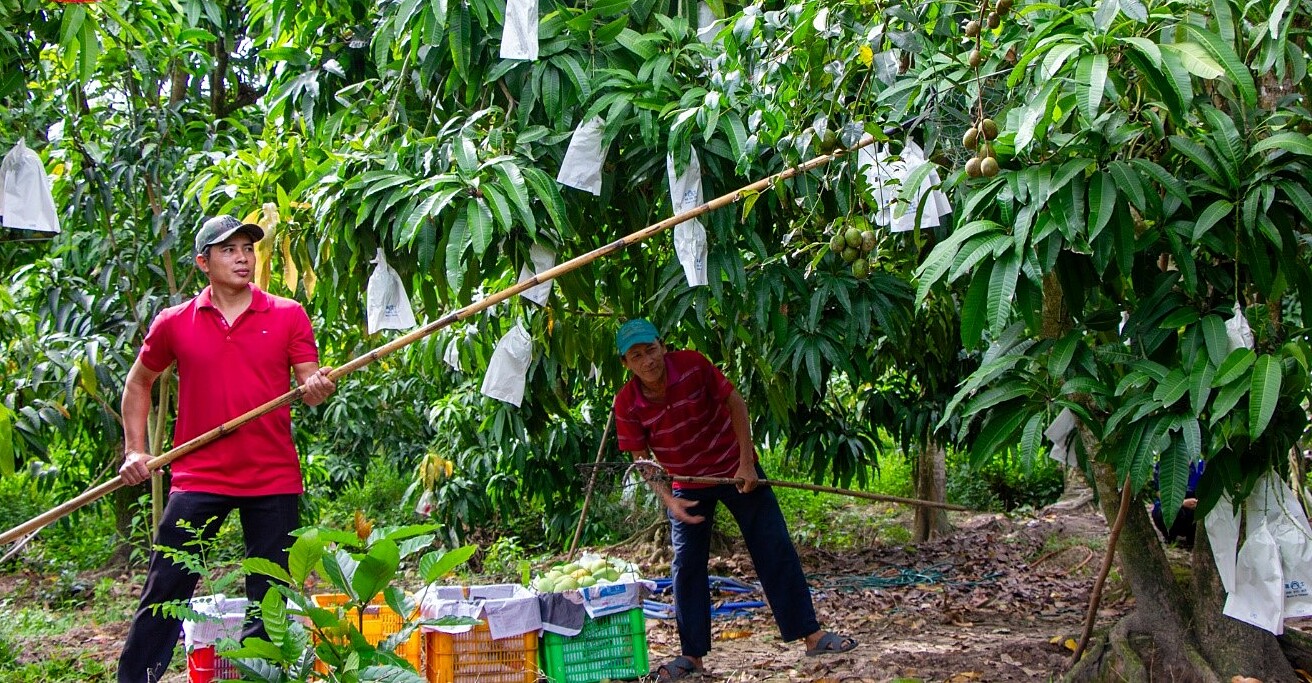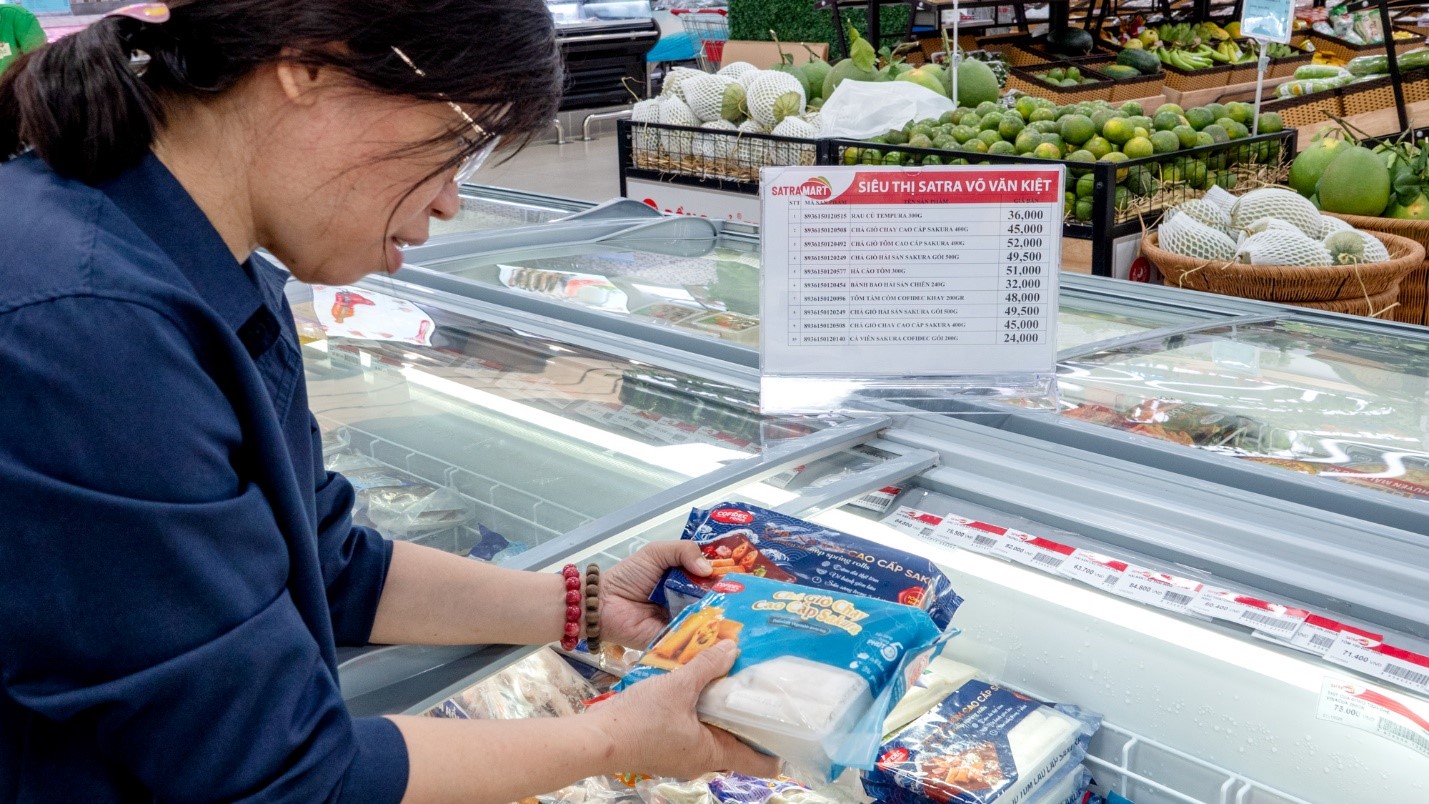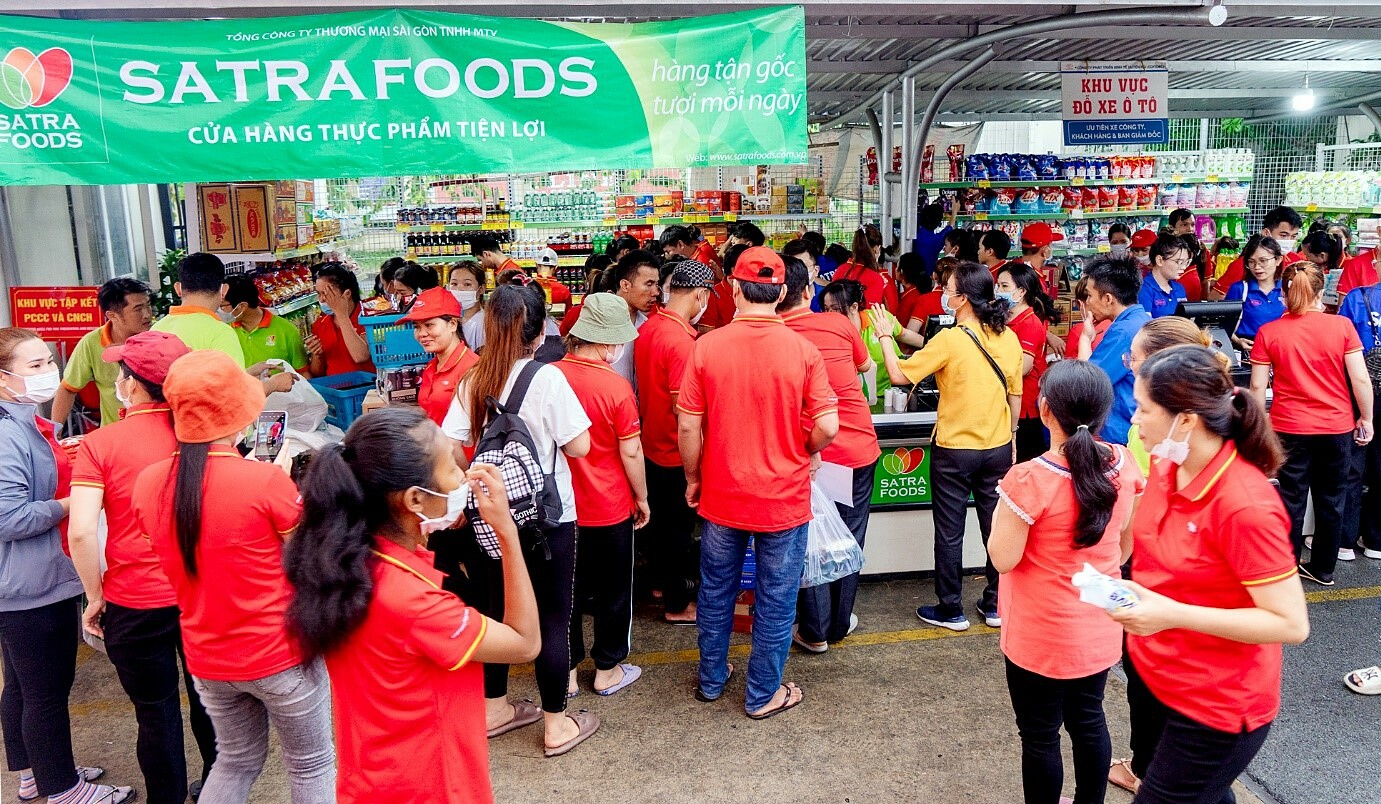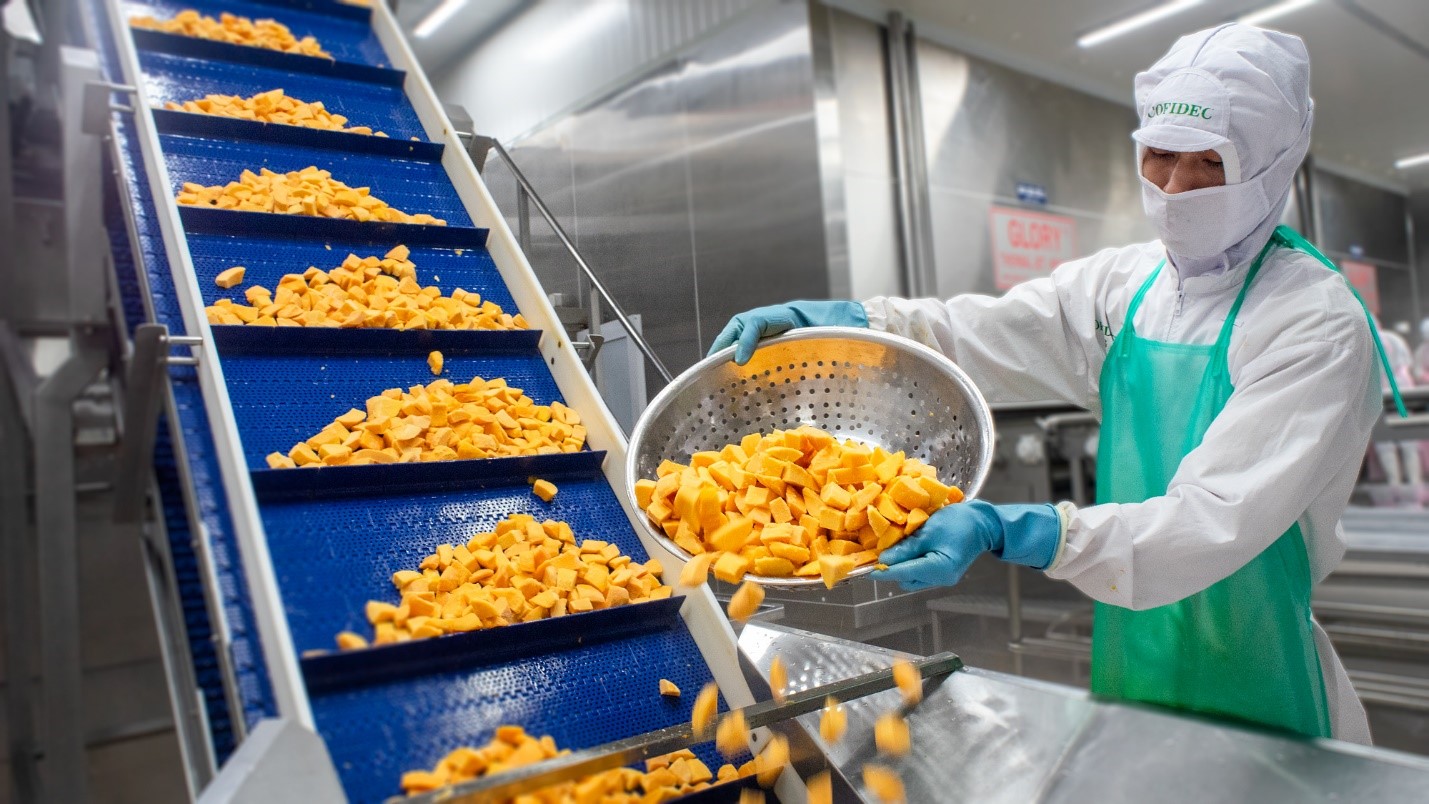As the global economy shifts towards sustainable development, the Vietnamese seafood industry faces increasing demands for quality, food safety, and environmental, social, and governance (ESG) standards. Coastal Fisheries Development Corporation (Cofidec), a member of Saigon Trading Group (SATRA), recognizes that ESG has become a prerequisite for survival and growth. The company has proactively implemented numerous activities to meet these standards.
To meet sustainable development requirements, Cofidec has implemented a "green production" strategy by upgrading its cold storage and renovating workshops at the Viet Nhat Food Processing Plant. Concurrently, the company focuses on developing clean material areas in the Mekong Delta according to Global G.A.P. standards – an international certification for good agricultural practices – to ensure transparency and traceability from the input stage.
Cofidec was honored as a "Typical Green Enterprise of Ho Chi Minh City" in 2024 for criteria such as energy-saving practices, byproduct recycling, and the application of circular wastewater treatment technology. A company representative stated that these green initiatives not only minimize environmental impact but also bring significant economic benefits through reduced operating costs, meeting the requirements of high-end markets, and strengthening the brand's reputation internationally.
 |
Cofidec is focusing on developing clean material areas in the Mekong Delta following GlobalGAP standards. Photo: SATRA |
Cofidec is focusing on developing clean material areas in the Mekong Delta following GlobalGAP standards. Photo: SATRA
In parallel, the company is implementing "digitalization of management." In collaboration with SATRA, Cofidec is deploying an enterprise resource planning (ERP) system to connect and manage production, quality, warehousing, and order data in real-time. ERP enables the company to track the entire product journey, from source to table, providing verifiable evidence for certification organizations and consumers. The application of ERP helps the company manage its supply chain more efficiently, save manpower, minimize errors, and achieve high-level sustainability standards like ASC and BAP.
Achieving quality certifications also plays a vital role in maintaining the company's position in the industry. Cofidec has built a comprehensive quality management system with important certifications such as HACCP, ISO 22000, BRC, and HALAL. These certifications guarantee food safety and serve as essential "passports" for products to enter international markets.
 |
Cofidec Foods products are recognized with important certifications: HACCP, ISO 22000, BRC, and HALAL. Photo: SATRA |
Cofidec Foods products are recognized with important certifications: HACCP, ISO 22000, BRC, and HALAL. Photo: SATRA
In the sustainable development model, the human element is always central. Corporate social responsibility (CSR) is not merely charitable activities but an integral part of the business strategy, contributing to enhancing brand reputation. At Cofidec, this is integrated into the core values, including "caring for and developing employees." This is also the "Social" pillar in the ESG model that the company is pursuing.
According to a company representative, the human resources policy is designed to turn human resources into a competitive advantage. The company focuses on comprehensive benefits and insurance policies, providing thoughtful care for employees. This includes not only salary and health insurance but also skills training, personal development, and building a dynamic and positive work environment.
By prioritizing employee well-being and development, Cofidec has built a solid foundation for growth. A well-cared-for workforce, both materially and mentally, will have higher productivity and longer-term commitment, thereby reducing recruitment and training costs. This also helps the company meet the requirements for sustainable certification, strengthening brand prestige in the international market.
 |
A free market for Cofidec's employees. Caring for and developing employees is always the ESG model that Cofidec pursues. Photo: SATRA |
A free market for Cofidec's employees. Caring for and developing employees is always the ESG model that Cofidec pursues. Photo: SATRA
Cofidec emphasizes that "pioneering in sustainable development" is not just a slogan but a comprehensive business strategy. In the first half of 2025, the company recorded revenue of 58.6% of the annual plan. Export turnover reached 54.3% of the annual plan. Profit exceeded the plan by 24%.
These figures are even more significant given rising input costs and increasing international competition. Key products such as spring rolls, frozen vegetables, and breaded seafood continue to be exported steadily to South Korea, the US, Australia, and especially Japan. The company's products receive special trust from Japanese partners.
 |
Cofidec's vegetable products are favored by the Japanese market. Photo: SATRA |
Cofidec's vegetable products are favored by the Japanese market. Photo: SATRA
Besides exports, Cofidec is expanding its domestic market share by bringing products into major retail systems such as SATRA, Aeon Mall, and Emart. This allows the company to diversify revenue sources and create a solid "buffer" against fluctuations in the international market.
A company representative shared that the three strategic pillars – "green production" (demonstrated through environmental initiatives and clean material areas), "digitalization of management" (as a foundation for efficiency and transparency), and "human development" (as the root of all development) – have helped Cofidec maintain growth momentum and conquer demanding markets. This also contributes to "shaping a more sustainable and responsible future for the Vietnamese seafood industry".
Hoang Anh












